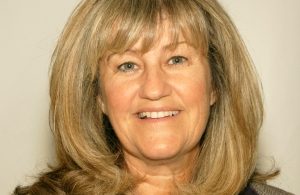BRADLEY NORTHCOTE
Mental health support is needed not just for students, but for other members of the Sheridan community. Some of them engage directly with students. Others work in the background. Whatever their role, staff at Sheridan are being offered two online courses and a short workshop series to help them cope with mental illness in the workplace.
The courses and workshops, which run from late February to April, are offered through a Workplace Mental Health Initiative by Sheridan’s Faculty of Continuing and Professional Studies (FCAPS). FCAPS offers continuing education programs and courses covering the range of Sheridan’s fields of study. They are laid out in three stages of focus: recovery, self-management, and return to work. They encourage individual recovery while also offering a supportive community of peers.
The FCAPS mental health program is funded by the Mississauga-Halton Local Health Integration Network (LHIN), one of 14 such networks responsible for local-level planning and funding of health care in Ontario.
FCAPS learned of the funding through a Peel regional organization which includes multiple groups in an effort to support immigrants and refugees settling into life in Ontario.
The courses are designed by Mandi Buckner, a mental health program consultant working at the Department of Workforce Development at FCAPS. She is certified by the Canadian Mental Health Association (CMHA), which collaborated with FCAPS to build the program, but her qualifications are personal as well as professional.
“Seven years ago I was a successful employee at a large financial organization, and if depression hadn’t hit me, I would now be retired with benefits and a 32-year unblemished record,” she says in a brief profile shared by CMHA. “But depression did hit me, and it hit hard . . . I lost a career that I loved. I now know that with the proper information and support, my career did not have to be a casualty of depression.”

Buckner has found a new career helping others hold onto theirs in the face of mental health struggles. She says she sees single-day awareness campaigns such as “Bell Let’s Talk” or the Centre for Addiction and Mental Health’s (CAMH) “One Brave Night” as important.
“[They] help to create awareness, to initiate funding for research and for program creation. Campaigns like Let’s Talk also help initiate the conversation, which helps to reduce the stigma attached to mental illness.”
It’s important to raise awareness among those who may suspect but not understand, the struggle of those facing mental illness, she said.
“There are [also] a plethora of awareness building resources and organizations,” Buckner says, giving as an example the Mental Health Commission of Canada (MHCC), which was formed after the first national study of mental illness and addiction, in 2006, found an “alarming number of challenges.”
Awareness, though, should lead to action addressing the impact of mental illness in workplaces, she said.
“Moving from awareness to action, in my opinion is the trajectory we are on right now . . . There is a need to learn from individuals who are struggling with [mental health].” Sheridan is sponsoring monthly Mental Health Conversations at Studio 89 in Mississauga, she said, “so we can continue to understand what the gaps are and what the needs are in order to [take] action.”
Meanwhile, for its workplace initiative, FCAPS will be working with individuals from Sheridan College and others from a variety of organizations, including the Afghan Women’s Organization and Peel Multicultural Council.
Cameron Moser, workforce development manager for FCAPS, hopes a broad group of individuals will continue to take interest in the courses and workshops. He hopes, especially, to reach vulnerable newcomers.

“We would like the group to be broad and diverse, but one of our goals is to have a number of participants from organizations serving refugees,” he said.
“It’s important that they receive more fulsome support as they continue to serve large numbers of Syrian and other refugees suffering from trauma and dislocation.”
Buckner wants to encourage students and staff to seize opportunities. She urges those joining the workforce not to avoid career opportunities out of fear that mental health struggles will hurt their job performance.
“I don’t believe there are any career paths that need to be avoided due to [students] experiencing mental health struggles. I think that understanding their struggles, and learning about self-care so they can manage their own lives, is the key to success in any career path. Having open, supportive dialogues can make a difference.”
